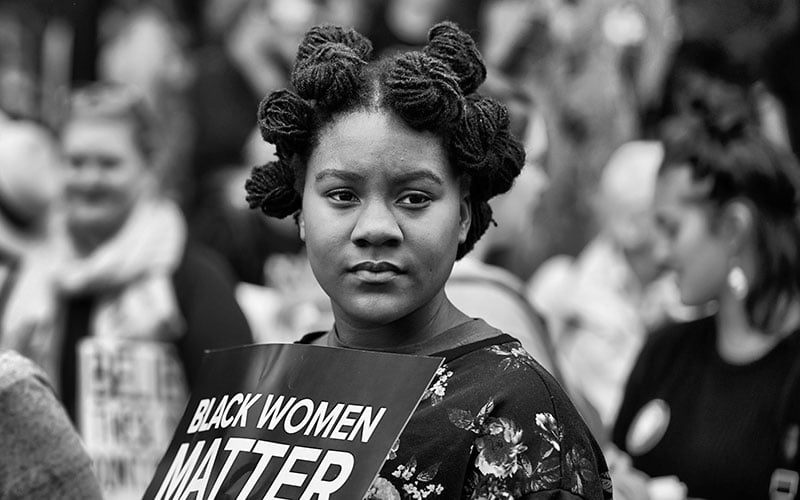
Research shows that LGBTQ+ individuals face a higher risk of developing eating disorders, which has led more and more providers to create specialized treatment to address that disparity and ensure people get the care they need. (Photo by Sgt. Edward Garibay/U.S. Army)
PHOENIX – With research showing that LGBTQ+ individuals have a higher risk of developing eating disorders, more care providers are creating specialized treatment to address these disparities and ensure people get the care they need.
Emmy Johnson is coordinator for gender affirmative care at Center for Discovery, a national eating disorder treatment center with programs in more than 50 U.S. cities, including Mesa.
Johnson uses their own experiences to make a personal connection with LGBTQ patients and works side by side with patients and their therapists to craft appropriate treatment.
“I can be there to support topics of how gender interacts with their eating disorder,” Johnson said. “Body image is a big one, gender exploration, transition steps, a lot of different stuff. …
I’m able to be there as part of that consultation to make sure that we’re always moving towards absolutely the best quality of care for our clients.”
Almost 30 million Americans will have an eating disorder, such as anorexia, bulimia and binge-eating, in their lifetimes, according to the National Association of Anorexia Nervosa and Associated Disorders.
Among LGBTQ+ people, rates are higher. For example, the association reports that transgender college students experience eating disorders at about four times the rate of cisgender classmates, and that 32% of transgender people have used an eating disorder to modify their bodies without hormones.

Emmy Johnson is coordinator for gender affirmative care at Center for Discovery, a national eating disorder treatment center with programs in over 50 U.S. cities, including Mesa. Almost 30 million Americans will have an eating disorder such as anorexia, bulimia or binge-eating in their lifetimes, studies show. Among LGBTQ+ people, rates are higher. (Photo courtesy of Center for Discovery)
“Sometimes, when we talk about things like, ‘All bodies are good bodies,’ those narratives can feel invalidating to trans folks,” Johnson said. “People can take the saying, ‘You just have to accept your body’ as ‘I don’t want you to have access to gender-affirming care.’ … But actually, it’s appropriate to take transition steps if that’s what’s right for you.”
A June study looked further into disparities among LGBTQ+ college students and found that students identifying as genderqueer or gender-nonconforming, along with transgender men, were most at risk of eating disorders.
Heidi Dalzell, an eating disorders specialist based in Newtown, Pennsylvania, said that when clients are grappling with the intersection of several different factors – gender identity, sexual orientation, racial identity – it further increases the chance of developing an eating disorder.
“One of the things that we’ve really started to do in the field is to take an intersectional approach, recognizing that people have multiple identities and that those identities are important to consider because the identities that they hold might be marginalized – and marginalized identities are often connected (with) heightened risk of eating disorders,” said Dalzell, who co-authored the book “A Clinician’s Guide to Gender Identity and Body Image.”
With transgender patients in particular, she said it’s important for providers to understand that they already feel uncomfortable in the body they were born in. When friends and families aren’t supportive of binders and other shapewear to change body structure safely, these patients might try to control their body shape by restricting food or eating too much.
“Depending on what the person experiences in terms of their body and their desired body, sometimes that’s one of the mediating factors,” Dalzell said. “When you think about it, eating disorders are, at heart, a way to change the body.”
Although many transgender people experience eating disorders, Dalzell said diagnoses too often remain gendered – largely due to common misconceptions that eating disorders are a so-called “girl thing” or because providers hinge diagnoses on whether a patient has stopped menstruating.
Dalzell said many of her clients have tried seeking treatment elsewhere, only to be told, “This center is only for women,” or they’ve been called by the wrong name or misgendered, which can be further triggering.
“With clients who ultimately wind up in my practice,” she said, “almost all of them come in with some sort of horror story.”
Although getting help from a provider who specializes in gender-affirming care is key, Johnson and Dalzell agreed that LGBTQ+ patients also need more support from loved ones.
“Eliminating diet culture is one of the biggest things,” Johnson said, “but families who are able to talk positively about their own bodies and other people’s bodies are able to have an intuitive and appropriate relationship with food.”
Johnson hopes that in years to come, more treatment centers incorporate programs for patients who might be exploring their gender or sexuality or who identify as LGBTQ+ – and not view this sort of treatment as simply a way to bring in more revenue.
“There’s some newer programs that are just getting started that are more LGBTQ-focused, which is very cool,” they said. “And sometimes people act like ‘Oh, this is a competition.’ But the reality is that there’s not enough treatment in general, so we don’t need to be competing with each other.”
It boils down to one bottom line, Johnson said.
“Everyone deserves care, everyone deserves treatment, everyone deserves spaces that are accepting of who they are and want to help them live the life that they want to lead, right?”


